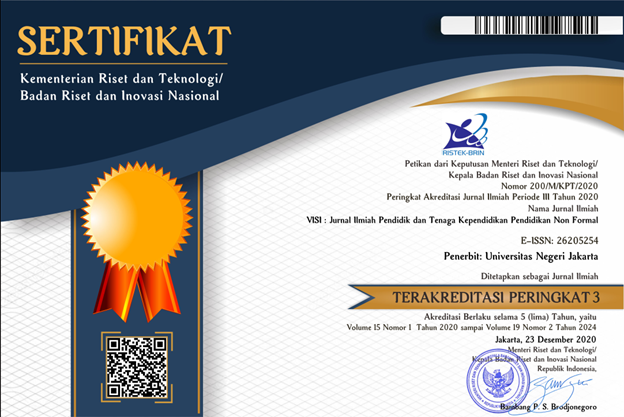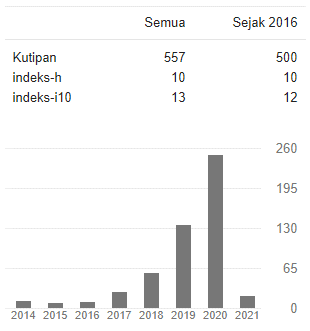MENGAPA PERLU PENDIDIK DAN TENAGA KEPENDIDIKAN UNTUK PENDIDIKAN LUAR SEKOLAH (NONFORMAL)
DOI:
https://doi.org/10.21009/JIV.0102.2Keywords:
nonformal educators, educational personnel, empowering, qualification, family education, school education, community educationAbstract
This paper discusses about the urgency of the provision of ‘nonformal educators and educational personnel’. Starting with a proposition that if formal education is already developed highly, then there will be no need for nonformal education programs, and consequently no need for nonformal educators and educational personnel. But, the real situations in the industrialized countries of USA and Japan are to the contrary. Nonformal education programs in those advanced countries have been developed and become part and parcel of learning-teaching societies. If the industrialized countries are still in need of nonformal education programs, then the need is indeed more urgent in developing countries, such as Indonesia, including the provision of nonformal educators and educational personnel, but of course not the same qualification as that for ‘formal educators and educational personnel’. The paper would like that Indonesian education goes back to the ideas of three interrelated centers of education, i.e. (a) family education, (b) school education, and (c) community education, and away from the present push toward too much school-oriented education. The responsibility of character-building of the young generation should stay in the hands of parents (family education as the first and foremost center) and cannot be left to the school teachers alone.
Downloads
Published
How to Cite
Issue
Section
License
Authors who publish with this Journal agree to the following terms:
- Author retain copyright and grant the journal right of first publication with the work simultaneously licensed under a creative commons attribution licensethat allow others to share the work within an acknowledgement of the work’s authorship and initial publication of this journal.
- Authors are able to enter into separate, additional contractual arrangementfor the non-exclusive distribution of the journal’s published version of the work (e.g. acknowledgement of its initial publication in this journal).
- Authors are permitted and encouraged to post their work online(e.g. in institutional repositories or on their websites) prior to and during the submission process, as it can lead to productive exchanges, as well as earlier and greater citation of published works.
- Users/public use of this website will be licensed to CC BY-NC-SA Creative Commons Attribution-NonCommercial-ShareAlike 4.0 International License









